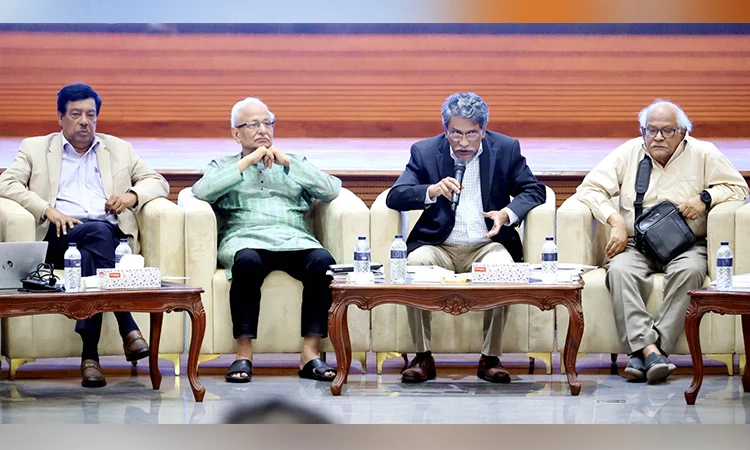Major political parties on Tuesday reached consensus on several critical parliamentary reforms as the National Consensus Commission (NCC) resumed dialogue among key stakeholders in Dhaka.
Among the major agreements were a proposed amendment to Article 70 of the Constitution — which currently prohibits lawmakers from voting against their party in parliament — and an increase in the number of reserved seats for women in parliament from 50 to 100.
The proposed revision to Article 70 would allow Members of Parliament to vote independently on all issues except two: money bills and votes of confidence.
Another key decision was to allocate the chairmanship of select parliamentary standing committees to opposition lawmakers, based on their seat share in parliament.
Specifically, opposition members would lead four major committees: the Public Accounts Committee, the Privileges Committee, the Committee on Estimates, and the Public Undertakings Committee.
These agreements were reached during the second phase of talks held at the Foreign Service Academy in Dhaka.
The meeting was attended by representatives from 29 political parties, including the Bangladesh Nationalist Party (BNP), National Citizen Party (NCP), Gono Odhikar Parishad, Gono Songhoti Andolon, Communist Party of Bangladesh (CPB), Revolutionary Workers’ Party, and the Amar Bangladesh (AB) Party.
However, Bangladesh Jamaat-e-Islami, a former ally of the BNP, skipped the meeting.
Briefing reporters, NCC Vice Chairman Ali Riaz said all attending parties supported the amendment to the Article 70.
“Under the proposed change, MPs will be required to follow the party line only on confidence votes and money bills. For all other matters, they will be free to vote independently,” he explained.
Riaz added that opposition lawmakers would be allocated leadership roles in the four key parliamentary committees, with posts distributed according to parliamentary representation.
He also confirmed broad political consensus on increasing women’s reserved seats to 100, although discussions are ongoing regarding the method of election for these seats.
Another major point of agreement was amending the current constitutional process for appointing the Chief Justice.
“All parties except two supported the proposal,” Riaz said, expressing optimism that full consensus could be achieved in upcoming sessions.
BNP Standing Committee Member Salahuddin Ahmed echoed these points, emphasising that the new agreements aim to ensure greater opposition participation in parliamentary reforms and constitutional amendments.
He reiterated the consensus on committee leadership and Article 70, clarifying: “MPs must follow the party line only on votes of confidence and monetary bills. This will be clearly stipulated in the national charter and signed by all participating parties.”
Salahuddin also noted that the BNP submitted an additional written proposal suggesting MPs should not be allowed to vote independently on matters related to national security. “This is still under discussion, but if the BNP comes to power, we will consider implementing it,” he said.
On the issue of women’s reserved seats, he confirmed party support for increasing the number to 100, but acknowledged that discussions about the electoral mechanism are still underway.
Gazi Ataur Rahman, joint secretary general of Islami Andolon Bangladesh, criticized the NCC for allegedly pressuring parties into accepting the proposal on reserved seats.
“It would be more dignified for women to contest in all 300 general seats and be elected directly,” he said. However, his party supports the proposed amendment to Article 70.
Gono Odhikar Parishad President Nurul Haque Nur raised concerns over the electoral environment.
“If people like us can still be held hostage after August 5, it’s hard to imagine a fair election,” he said, emphasising the need for a level playing field.
Commenting on a recent meeting in London, Nur said the government has made no official comment and termed it a “government matter.”
He added that most political parties in the dialogue agreed on the importance of opposition representation in parliamentary committees, as well as reforms to Article 70 and the increase in women’s reserved seats.
CPB General Secretary Ruhin Hossain Prince stressed that the national election must not be delayed.
“People have been deprived of their voting rights in the past. A timely election is crucial for restoring democracy,” he said.
Prince reaffirmed CPB’s support for proportional representation and welcomed the proposed reforms, including changes to Article 70 and expanding women’s representation in parliament.


